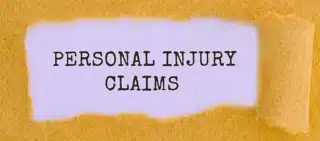
When a Dog Attacks Again and Again If dogs attack once, it’s alarming. When they attack five times, it’s no...


Third-party insurance claims are claims that you file with another person’s insurance company. If you have been in an accident caused by another person and suffered damages, you would usually file a claim with the at-fault person to seek compensation. Illinois law requires that all drivers carry injury and property damage liability insurance to cover damages they may cause in a car accident. In this case, it is not the at-fault person who pays for your damages, but his or her insurance company.
When people get in their cars to go anywhere, it is unlikely that anyone is expecting to be in a car accident. However, car crashes happen every day. In 2021 in the United States, an estimated 42,915 people died in car accidents. In 2020, approximately 4.8 million people were seriously injured in car accidents, and the estimated total cost resulting from accidents was $474 billion.
If you have been in a car accident, the aftermath can be stressful, and many things must be dealt with. These include filing the crash report or getting the police to do this, getting medical care for your injuries, scheduling repairs to your vehicle, possibly having to take time off work, and filing an insurance claim. In such a situation, it is important to understand how to file a third-party insurance claim, so that you receive fair compensation when it comes to a settlement.

To understand what a third-party insurance claim is, it helps to understand exactly what insurance does, and what third-party insurance is. A person holds an insurance policy, by paying an insurance premium each month to an insurance company. The insurance company then provides a guarantee of compensation in the event of loss, damage, illness, injury, or death. The job of the insurance company is to collect premiums, hold the money, and distribute it to policyholders to cover losses suffered by them.
Third-party coverage is a type of insurance policy that covers you for claims by another person who is not a party to your insurance contract. If you cause another person some form of injury or property damage, he or she may claim damages from you. Your third-party insurance will pay the damages for which you are liable due to your negligence or fault. It will also pay for the cost to defend you in the event of litigation. Because third-party insurance covers you for liability, it is sometimes called liability insurance.
There are three parties involved in a third-party insurance claim.
The first party. This is the person or car owner who holds the insurance policy and is the person who caused damages or injuries to another person by his or her negligence or fault. This person is sometimes referred to as the insured.
The second party. The second party is the insurance company which is responsible for paying any valid claims made against the first party.
The third party. This is anyone, aside from the first party, to whom the first party caused damage or injuries.
An example of a third-party insurance claim would be when you stop at a traffic light, and another car then rear-ends you. In this case, you can claim for any injuries or damages that you have suffered, and that other driver’s insurance policy will cover your damages. You will receive compensation, even though you do not pay premiums to the other driver’s insurance company and had no relationship with the prior to the accident. In this case, you are the third party and the compensation you receive comes from a third-party claim.
Third-party insurance is the most basic form of insurance that you can get. However, you may have first-party insurance, sometimes referred to as comprehensive insurance. A first-party insurance claim is between the policyholder, and his or her insurance company. It protects the interests of the policyholder against damages suffered by him or her. An example of a first-party claim is where a homeowner suffers damage to his or her home from a fire. This person will then claim with the insurance company which will cover the cost of repairs in accordance with the existing insurance policy.
If you have first-party insurance, you are the person who holds the insurance policy, pays the bill, and can file a claim with your own insurance company after an accident. So, if you are in an accident with another person, even if the other person was at fault, you can notify your insurance company, who will then pay you fairly for your losses. A first-party claim is one that you make with your own insurance company if you have first-party cover, and a third-party insurance claim is one that you make with another person’s insurance company if he or she was at fault and has third-party cover.
If you have first-party insurance and are in an accident caused by another person, you have three options to seek compensation:
You would normally consider who is at fault in deciding whether to file a first- or third-party claim. In most cases, the person who is at fault and causes the accident pays for the damages. So, if you were at fault and wanted to file an insurance claim to recover compensation, you would file a first-party claim with your insurance. If another person was at fault, you would pursue a third-party insurance claim with that to recover compensation from that person’s insurance company.
If it isn’t immediately apparent who is at fault, you might have to bring both a first-party claim and a third-party insurance claim. If the at-fault person is underinsured or uninsured, then you will have to file a first-party claim with your own insurance company.
It is always helpful to consult a car accident lawyer when you need to consider insurance claims. Having a lawyer to assist you can help reduce the time it takes to file your claim effectively and assist you with getting the maximum compensation.
Third-party liability coverage pays for injury or damage caused to a third person due to the first person’s negligence or fault. In car accidents, it will pay for injuries or property damage due to negligent driving. If you are the insured person, your insurance will also pay if the accident was caused by a person who is driving your car with permission.
Third-party insurance is separated into two types of coverage. Illinois law requires drivers to have a minimum level of cover for third-party insurance.
The first type is bodily injury, which covers costs arising from injury or death to anyone in another car, pedestrians, or passengers. In Illinois, vehicle owners are required to have a minimum insurance cover of $25,000 for one person injured or killed, and $50,000 total for two or more persons injured or killed in any one accident.
The second type is property damage. This compensates another person for damage to his or her car or other property that might get damaged such as fencing, buildings, signs, or trees. Drivers in Illinois are required to have a minimum cover of $20,000 third-party cover for property damage caused to another person per accident.
Illinois insurance is a fault-based system. This means that the driver who causes an accident by his or her fault or negligence is required to compensate anybody else who suffers damages. However, under comparative negligence rules, if you are partly negligent, contributing to the accident, then your claim will be reduced by a percentage equal to the portion of your negligence. So, if you are in an accident caused by another driver, incurring damages worth $10,000 but your negligence was deemed to contribute 20% to the accident, then your compensation will be reduced by 20%, and you will be entitled to $8,000 compensation. If you were more than 50% at fault in causing the accident, then you will not be entitled to claim compensation but will be liable to compensate others for their damages.
An example of comparative negligence is if you were speeding down a road, and another driver makes a left-hand turn in front of you. Both drivers in this case contributed to the accident, and the insurance company will apply comparative negligence laws in determining liability.
Third-party claimants can usually recover compensation for the following:
After an accident, one of the most important things that you will have to know is how to file a third-party insurance claim for damages. The aftermath of an accident can be stressful and confusing. There are several steps to take to ensure that you can make a successful third-party insurance claim. If you have been considering when to get a lawyer, it is best to have one right from the start to guide you through the process.
After an accident, law enforcement will attend the scene, and create an accident report, which records essential information about the accident. This will help to provide evidence to support your claim.
Some of this information may be contained in the police report, but it is important to have certain information about the other driver to be able to file a third-party claim. You need the other driver’s name and contact information, insurance policy numbers, and details of each car involved in the accident.
Aside from information about the other driver, you will also need photos of the damage caused by the accident, the location, conditions of the scene, and a description of events leading up to the accident, as well as the accident itself, and contact information of witnesses as well as the police officer who attended the scene. These are for evidence in supporting your claim for compensation.
Your insurance company may have policy rules requiring you to inform them of any accidents. They may also work with the at-fault driver’s insurance company on your behalf to make your third-party claim easier.
Your insurance company will let you know whether they will do this for you or if you should do this yourself. The insurance company’s primary obligation is to its own policyholder, so your direct contact is limited. It will likely assign you a claims adjuster.
The claims adjuster investigates the accident to determine fault, as well as the amount of compensation due to you based on your damages and available evidence. It is important to have an attorney assisting you with this process to make sure that the conclusions reached about fault, as well as compensation offered for damages are fair.
The other driver’s party will make you an offer for compensation, called a settlement offer. If you accept this, you will receive a payout in exchange for releasing the other driver from liability. If you do not think the offer is fair, you or your attorney can reject it and try to negotiate a different amount. Each company usually has its own appeals process that you can follow if you need to. Alternatively, you can institute legal action, and a judge or jury can decide who is at fault and how much the other driver owes you for damages.

When a Dog Attacks Again and Again If dogs attack once, it’s alarming. When they attack five times, it’s no...

Overview of the Personal Injury Claim Process in Illinois No one expects to suffer an injury or get involved in...

Exploring Caps on Damages in Illinois Personal Injury Cases Illinois does not have laws capping damages in successful personal injury...